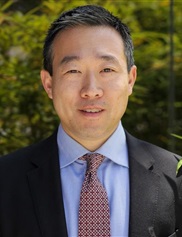Grants Funded
ASPS/PSF leadership is committed to continuing to provide high levels of investigator-initiated research support to ensure that plastic surgeons have the needed research resources to be pioneers and innovators in advancing the practice of medicine.
Research Abstracts
Search The PSF database to have easy access to full-text grant abstracts from past PSF-funded research projects 2003 to present. All abstracts are the work of the Principal Investigators and were retrieved from their PSF grant applications. Several different filters may be applied to locate abstracts specific to a particular focus area or PSF funding mechanism.
Improving the Ex-vivo Eexpansion of Adipose Tissue Derived Stem Cells by Modulating Regulators of Cellular Senescence
Principal Investigator
Alex Wong MD
Alex Wong MD
Year
2006
2006
Institution
University of Pittsburgh
University of Pittsburgh
Funding Mechanism
Basic Research Grant
Basic Research Grant
Focus Area
Tissue Engineering
Tissue Engineering
Abstract
Adipose tissue derived stem cells (ADSCs) have enormous potential for use in tissue engineering and cell-based regenerative medicine. Unfortunately, like all adult cells, ADSCs can only undergo a finite number of cell divisions prior to entering senescence. We hypothesize that by manipulating molecular regulators of senescence, such as Bmi-l or telomerase (hTERT), we will enable improved ex-vivo expansion of ADSCs and thereby enhance their potential clinical utility. Furthermore, by characterizing a large panel of independently derived ADSC lines for the expression of senescence markers such as Bmi-l, p 16Ink4a , and p 19Arf , we may be able to pre-select ADSC populations that are optimal for use in future tissue engineering applications or clinical protocols.
Adipose tissue derived stem cells (ADSCs) have enormous potential for use in tissue engineering and cell-based regenerative medicine. Unfortunately, like all adult cells, ADSCs can only undergo a finite number of cell divisions prior to entering senescence. We hypothesize that by manipulating molecular regulators of senescence, such as Bmi-l or telomerase (hTERT), we will enable improved ex-vivo expansion of ADSCs and thereby enhance their potential clinical utility. Furthermore, by characterizing a large panel of independently derived ADSC lines for the expression of senescence markers such as Bmi-l, p 16Ink4a , and p 19Arf , we may be able to pre-select ADSC populations that are optimal for use in future tissue engineering applications or clinical protocols.
Biography
 I am a plastic surgeon-scientist at the Keck School of Medicine of University of Southern California with an independent research laboratory at the USC Institute for Genetic Medicine. My time/effort allocation to research is 75%. My laboratory studies basic and translation aspects of lymphedema using clinically relevant murine models. In 2012, Dr. Young-Kwon Hong and I discovered that 9-cis retinoic acid stimulates lymphangiogenesis in vitro and in vivo. We are currently exploring a role for 9-cis retinoic acid in the pharmacologic treatment of surgically induced lymphedema. Our work has been published in journals such as Circulation and Annals of Surgery and has been supported by grants from the Southern California Clinical Translational Science Institute, Whittier Foundation, and the NIH.
I am a plastic surgeon-scientist at the Keck School of Medicine of University of Southern California with an independent research laboratory at the USC Institute for Genetic Medicine. My time/effort allocation to research is 75%. My laboratory studies basic and translation aspects of lymphedema using clinically relevant murine models. In 2012, Dr. Young-Kwon Hong and I discovered that 9-cis retinoic acid stimulates lymphangiogenesis in vitro and in vivo. We are currently exploring a role for 9-cis retinoic acid in the pharmacologic treatment of surgically induced lymphedema. Our work has been published in journals such as Circulation and Annals of Surgery and has been supported by grants from the Southern California Clinical Translational Science Institute, Whittier Foundation, and the NIH.
 I am a plastic surgeon-scientist at the Keck School of Medicine of University of Southern California with an independent research laboratory at the USC Institute for Genetic Medicine. My time/effort allocation to research is 75%. My laboratory studies basic and translation aspects of lymphedema using clinically relevant murine models. In 2012, Dr. Young-Kwon Hong and I discovered that 9-cis retinoic acid stimulates lymphangiogenesis in vitro and in vivo. We are currently exploring a role for 9-cis retinoic acid in the pharmacologic treatment of surgically induced lymphedema. Our work has been published in journals such as Circulation and Annals of Surgery and has been supported by grants from the Southern California Clinical Translational Science Institute, Whittier Foundation, and the NIH.
I am a plastic surgeon-scientist at the Keck School of Medicine of University of Southern California with an independent research laboratory at the USC Institute for Genetic Medicine. My time/effort allocation to research is 75%. My laboratory studies basic and translation aspects of lymphedema using clinically relevant murine models. In 2012, Dr. Young-Kwon Hong and I discovered that 9-cis retinoic acid stimulates lymphangiogenesis in vitro and in vivo. We are currently exploring a role for 9-cis retinoic acid in the pharmacologic treatment of surgically induced lymphedema. Our work has been published in journals such as Circulation and Annals of Surgery and has been supported by grants from the Southern California Clinical Translational Science Institute, Whittier Foundation, and the NIH.